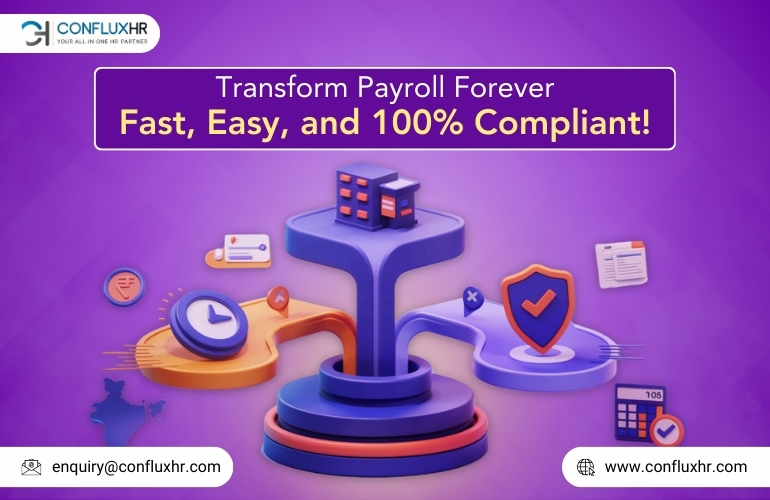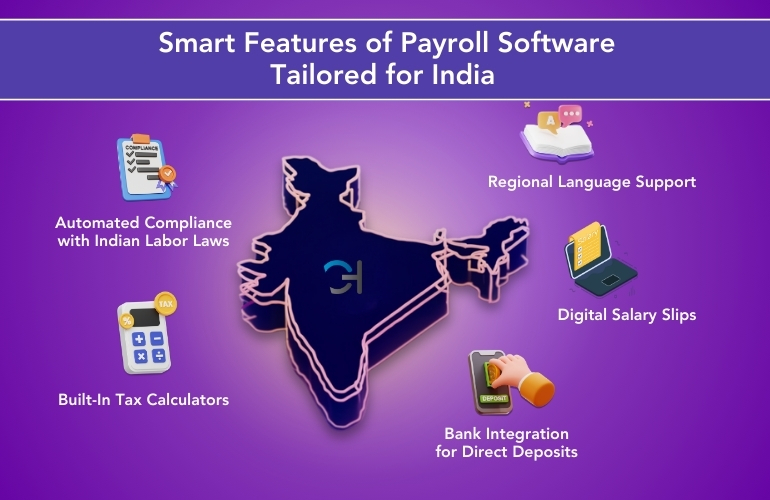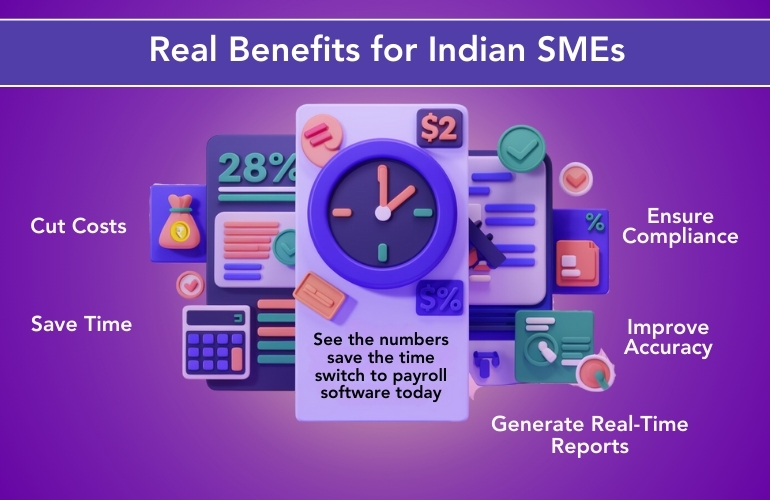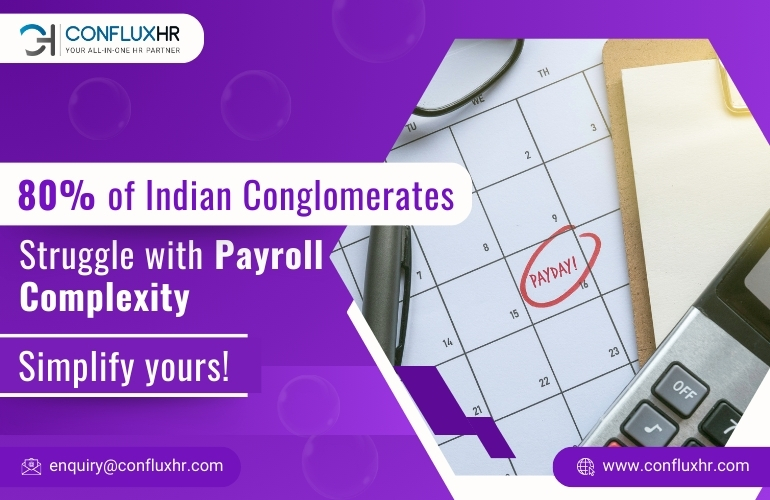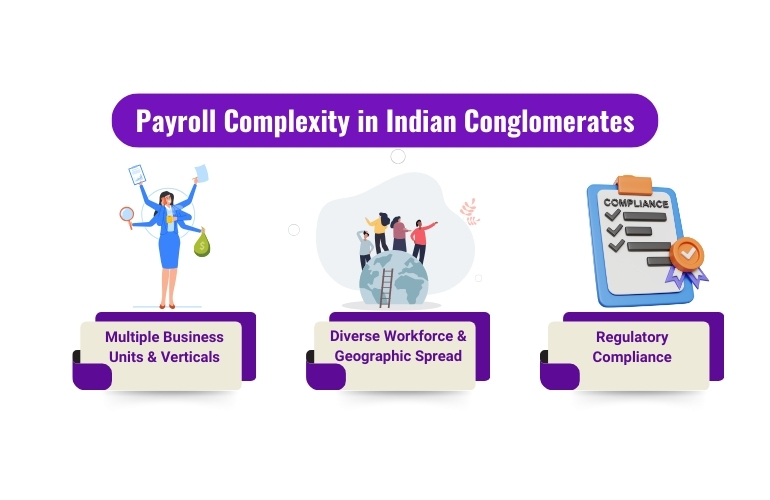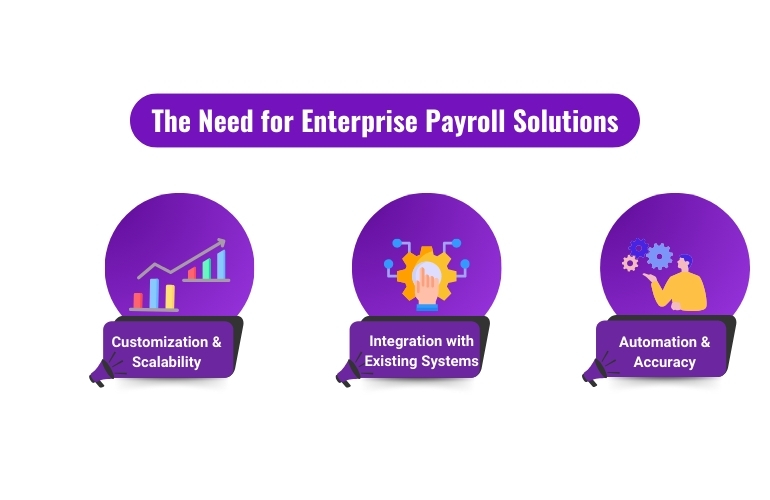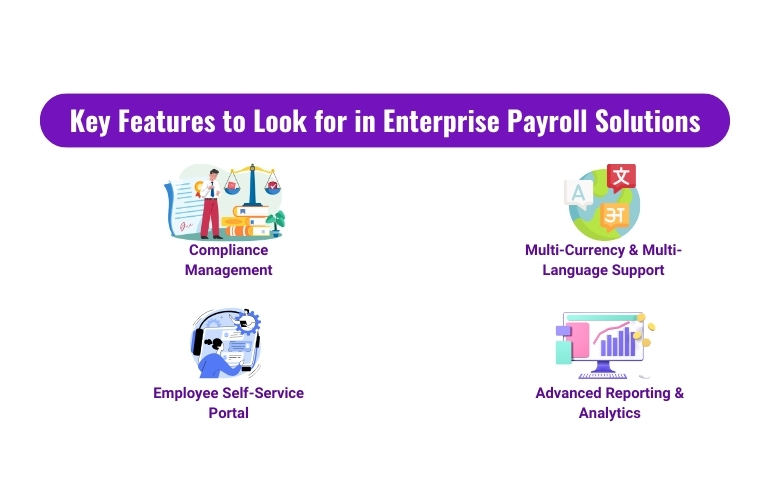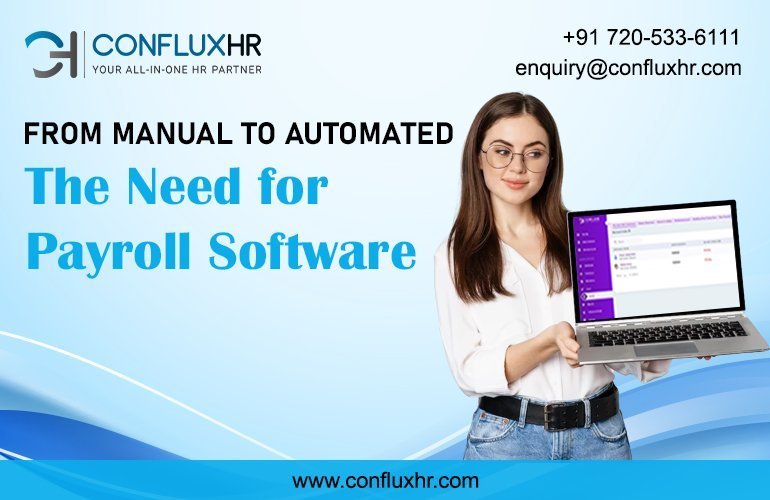Are you still managing payroll with Excel sheets or traditional bahi khata methods? In an era where UPI payments are completed in seconds and GST filing is digital, relying on outdated payroll methods can hold your business back. Payroll isn’t just about salaries—it’s a cornerstone of compliance, efficiency, and employee satisfaction.
For Indian small and medium enterprises (SMEs), manual payroll management is riddled with challenges: time-consuming processes, frequent regulatory updates, and the risk of errors that could lead to penalties. It’s time for Indian SMEs to embrace payroll software, a solution designed to streamline operations and address unique local needs.
In this blog, we’ll explore how modern payroll software is revolutionizing Indian SMEs, breaking down the features, benefits, and steps to implementation. By the end, you’ll understand why upgrading your payroll system is not just a smart choice but a business necessity.
Why Manual Payroll No Longer Works
Imagine it’s payday. Your accountant is buried under paperwork calculating TDS, PF contributions, and professional tax, while your HR team fields salary-slip requests on WhatsApp. Sound familiar?
Manual payroll management is more than just inefficient—it’s a compliance risk in India’s ever-evolving regulatory environment. Frequent updates to labor laws, PF rates, and tax regulations can make manual compliance feel like catching a Mumbai local train during rush hour: stressful and risky.
Here’s why manual payroll fails Indian SMEs:
- Time-Consuming: Payroll processing can take hours per employee each month.
- Error-Prone: Manual calculations increase the likelihood of errors in deductions and compliance.
- Non-Scalable: As your business grows, managing payroll manually becomes unsustainable.
- Compliance Risks: Falling behind on EPFO, ESI, or tax regulations can result in penalties.
💡 Quick Check: Are you spending over 2 hours per employee on payroll each month? If yes, it’s time to upgrade.
Smart Features of Payroll Software Tailored for India
Modern payroll software is designed with Indian businesses in mind. It’s not just about salary calculations anymore—it’s a complete solution for payroll, compliance, and employee management.
Key Features:
- Automated Compliance with Indian Labor Laws
Stay updated with EPFO, ESI, and the new Labor Codes automatically. No more manual tracking of regulation changes. - Built-In Tax Calculators
Seamlessly calculate PF, ESI, TDS, and Professional Tax for accurate and hassle-free deductions. - Regional Language Support
Employee self-service portals in local languages like Hindi, Tamil, and Marathi improve accessibility and engagement. - Multi-Location Support
Perfect for businesses with offices in different states, ensuring compliance with state-specific labor laws. - Digital Salary Slips
Generate secure, shareable salary slips with just a click. - Form 16 Management
Simplify the process of generating and distributing Form 16 for employees. - Bank Integration for Direct Deposits
Pay salaries directly through integration with Indian banking systems like SBI, HDFC, and ICICI.
💡 Pro Tip: Choose software with bulk Aadhaar and PAN verification to streamline employee onboarding.
Real Benefits for Indian SMEs
Adopting payroll software goes beyond automation—it delivers tangible benefits that directly impact your bottom line.
Here’s what you can achieve:
- Save Time: Reduce payroll processing time by up to 75%. SMEs processing payroll for 100 employees can now finish in hours instead of days.
- Cut Costs: Save ₹15,000–₹20,000 monthly by eliminating overtime for accountants.
- Ensure Compliance: Avoid costly penalties with automated updates to labor laws and tax regulations.
- Improve Accuracy: Minimize human errors in statutory deductions, boosting trust and satisfaction among employees.
- Generate Real-Time Reports: Simplify audits and share investor-ready financial reports.
Case Study: Sharma Electronics, Pune
Before switching to payroll software, Sharma Electronics spent three days each month processing payroll for 200 employees. In 2024, they adopted automated payroll software, cutting payroll time down to just two hours. Over the past year, they’ve avoided compliance penalties entirely, saving both time and money.
How to Implement Payroll Software for Your Business
Worried about transitioning to a digital payroll system? Implementation can be simple and efficient with the right approach.
Step-by-Step Guide:
- Assess Your Needs
Identify your pain points. Are compliance errors frequent? Does payroll processing take too long? Use these insights to prioritize features. - Research Software Vendors
Look for vendors who offer solutions tailored to Indian SMEs. Ensure they have valid GST registration and a strong client base in India. - Start with a Pilot
Test the software with a small group of employees to identify any challenges before full-scale implementation. - Train Your Team
Provide training in your preferred language to ensure your payroll and HR teams are comfortable using the software. - Scale Up Gradually
Once the pilot is successful, roll out the software for your entire organization.
🎯 Success Tip: Choose a vendor with 24/7 customer support to handle any unexpected issues.
The Future of Payroll in India
The payroll landscape in India is evolving rapidly, and staying ahead of the curve can give your business a competitive edge. Here’s what to expect in the near future:
- UPI-Integrated Salary Payments
Instant salary disbursements through UPI for faster transactions. - AI-Powered Compliance Checks
Automated alerts for non-compliance, ensuring you never miss regulatory updates. - Blockchain-Based Records
Enhanced security with blockchain to protect sensitive payroll data. - Voice-Enabled Interfaces
Regional language support through voice commands, making payroll management accessible to non-technical users.
The future is digital, and embracing these advancements will help Indian SMEs remain competitive in a fast-changing business environment.
Conclusion
Managing payroll manually is no longer feasible for Indian SMEs in 2025. Modern payroll software offers a complete solution tailored to India’s unique regulatory and operational challenges. From automated compliance to regional language support and real-time reporting, these tools save time, reduce costs, and improve accuracy.
Upgrading to payroll software isn’t just an investment—it’s a strategic move to future-proof your business.
Quick Action Steps:
- Audit your current payroll process.
- Calculate the time and money spent on manual processes.
- Request demos from Indian payroll software providers.
- Start your digital payroll journey today!
Ready to transform your payroll management? Contact us for a free demo of our made-in-India payroll solution and see the difference it makes!


